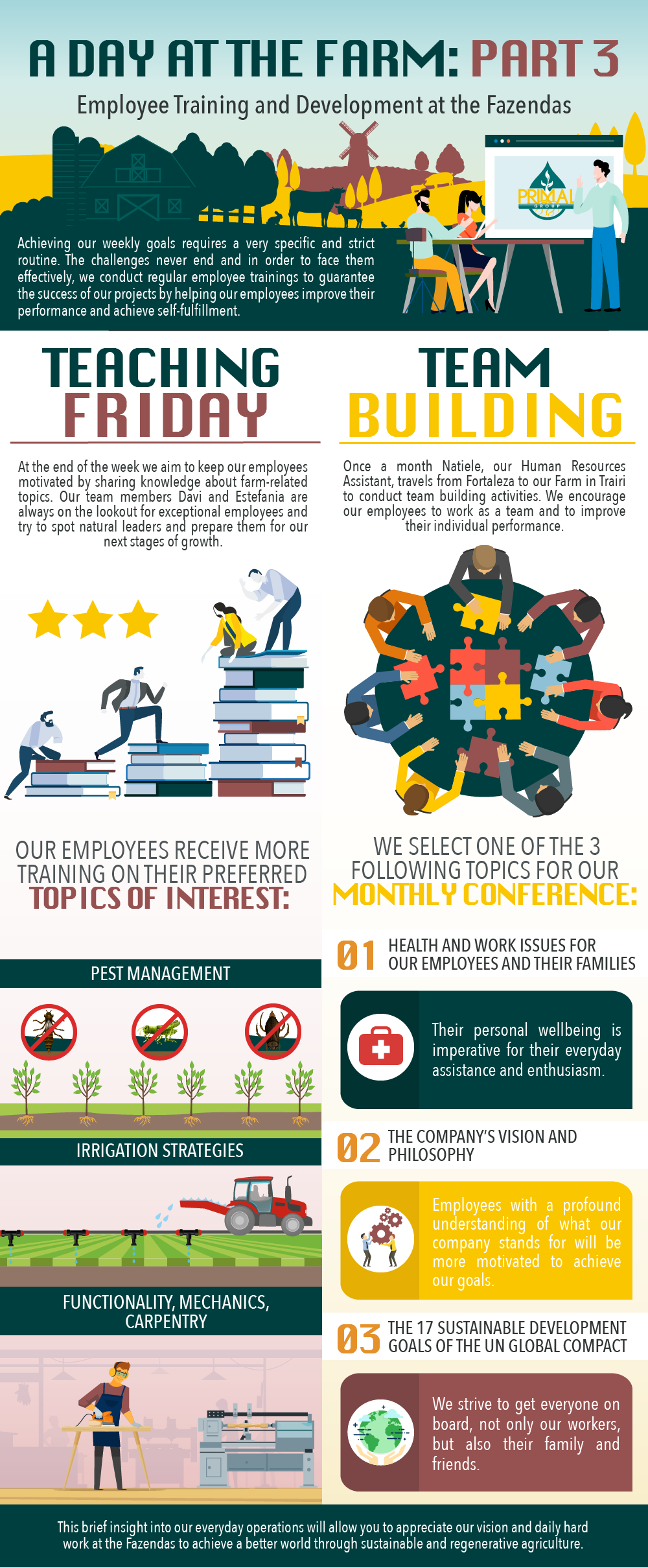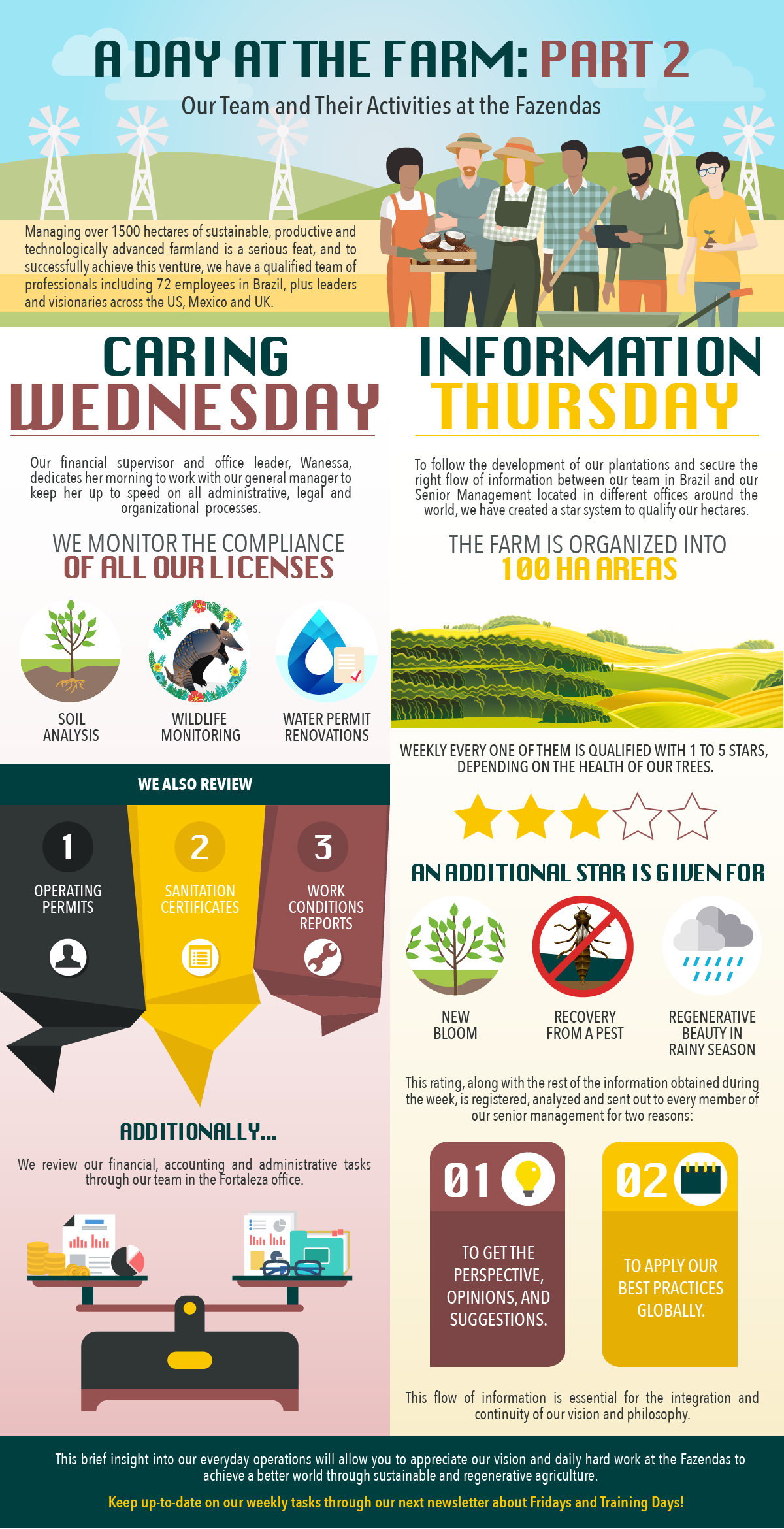A Glimpse into a Plantation Tour
At Primal, we take great pride in our philosophy and the principles of sustainability, regenerative agriculture and futurist technologies we implement on a daily basis. We therefore greatly appreciate every opportunity to tour our investors around our project in Brazil, and share aspects of the plantations that are not fully appreciable until being on the ground and experiencing the project first hand. Given that time constraints of daily life dictate that only a limited portion of our clients can visit in person, we would like to allow those who aren’t able to visit as close an experience as possible by sharing details of some of our client visits.…
 …
… …
…